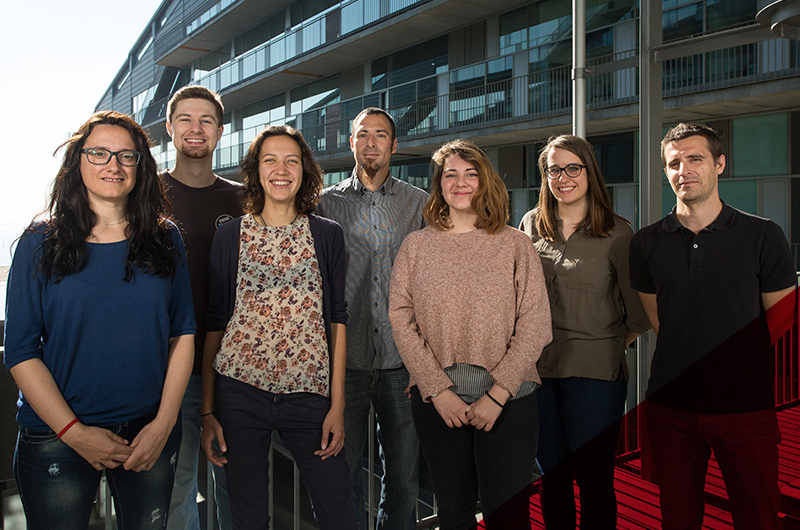Single-cell behaviour
Lucas Carey

Research Outline
Individual cells within a single population express different genes, grow differently, and respond differently to stimuli and stress. We combine mathematical modeling with high-throughput quantitative single cell measurements to understand, from a stochastic point of view, the molecular mechanisms that underlie gene expression, cell growth and division.
Research Lines
The molecular determinants and evolutionary consequences of non-genetic variability in fitness
Fitness in single-cell organisms and cancer is the number of offspring a cell is able to produce in a given amount of time, and is typically measured as a population average trait. However, growth is highly variable and any single cell will differ from the average. This variation has important consequences for bacterial antibiotic resistance and tumor chemo-resistance. Variability in the mapping of genotype to fitness also affects the ability of natural selection to shape the allele frequencies within populations. The main objective of this project to characterize the molecular events that generate variability in fitness within an isogenic population, and to understand the effect of this variability on evolution.
Team during 2017-18
- Postdocs: Alsu Missarova , Christina Molero
- Technicians: Xavi Marcos-Fa.
Selected publications 2017-18
- Van Dijk, D., Sharon, E., Lotan-Pompan, M., Weinberger, A., Segal, E., and Carey, L.B. (2017). Large-scale mapping of gene regulatory logic reveals context-dependent repression by transcriptional activators. Genome Res. 27.
- Schikora-Tamarit, M.À., and Carey, L.B. (2018). Poor codon optimality as a signal to degrade transcripts with frameshifts. Transcription 9.
- Schikora-Tamarit, M.À., Lopez-Grado i Salinas, G., Gonzalez-Navasa, C., Calderón, I., Marcos-Fa, X., Sas, M., and Carey, L.B. (2018). Promoter Activity Buffering Reduces the Fitness Cost of Misregulation. Cell Rep. 24.
- Gabalda-Sagarra, M., Carey, L.B., and Garcia-Ojalvo, J. (2018). Recurrence-based information processing in gene regulatory networks. Chaos 28.
- Borca, M.V., O’Donnell, V., Holinka, L.G., Ramírez-Medina, E., Clark, B.A., Vuono, E.A., Berggren, K., Alfano, M., Carey, L.B., Richt, J.A., et al. (2018). The L83L ORF of African swine fever virus strain Georgia encodes for a non-essential gene that interacts with the host protein IL-1β. Virus Res. 249.
